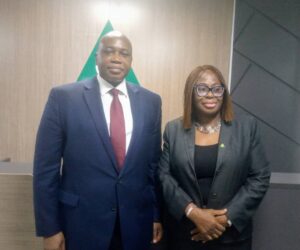“The insurance industry is interested in AI. There are several positives from it. There are areas we need to be wary of. Insurance companies and the industry need to put a policy on AI and determine what is acceptable and what is not and determine how we will go about it. I am sure the National Insurance Commission will put up a policy to guide us.”
The Chairman Nigerian Insurers Association NIA Mr. Kunle Ahmed gave this snapshot of generative AI capturing individual companies involvement, the industry and ultimately the involvement of NAICOM to drive responsible AI adoption. This would align with current world plugin to generative AI, geared towards creating solution as more questions arise. His views were shared at a recent media briefing in Lagos.
Citing its immense capabilities and abilities to work with data to generate solutions at a very fast rate, Ahmed said there is no way the industry can be innovative without employing some levels of AI. The need for Artificial Intelligence he said, has grown because it can achieve much more and, if the insurance industry wants to be innovative it has to adopt it. “We don’t want to be the industry that does same thing over and over again. We will continue to get the same result. We want to be better than where we were last year. We want improvement improvement in terms of customer satisfaction.”
He said Nigeria has a peculiar problem of not having a central data, nonetheless he holds firm that “we can also develop things that will ensure it makes easier for people to insure their assets without invading their privacy and we need some involvement of AI to do this.” Interestingly he said some companies have started invested in new products using AI generated data and this new involvement would spread. However, he said the market needs a clear policy on this.
“Although it can be argued that investment in new products to address emerging risks is low, some players are currently taking steps to harness the opportunities. For instance, on climate change, insurance are leveraging advanced data analytics and AI to improve climate modelling, which enables more accurate predictions of extreme weather events and their impacts. Most insurance companies currently have parametric index yield yield agric insurance, we expect that in the coming months, a parametric insurance solution for flood risk will commence in Nigeria. Insurance companies are also introducing policies that incentivize sustainable practices, such as granting discounts for eco-friendly buildings or renewable energy projects. We are also partnering with governments and environmental organisations to fund climate-resilience projects and promote sustainable development,” he stated.
Queuing behind the order of innovation and AI he said, “Overall, the insurance industry recognises that traditional approaches to risk assessment and underwriting are insufficient for emerging risks. Innovation, collaboration, and a strong focus on technology and data are essential for developing effective solutions and ensuring the industry’s continued relevance and sustainability in the face of these evolving challenges.”








































